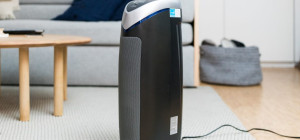 Smoke may sometimes smell good, yet it’s not good for you. If you are healthy, you are not ordinarily at real risk from smoke. Still, it’s a good thought to avoid breathing smoke if you can help it.
Smoke may sometimes smell good, yet it’s not good for you. If you are healthy, you are not ordinarily at real risk from smoke. Still, it’s a good thought to avoid breathing smoke if you can help it.
Smoke is comprised of a mind boggling blend of gasses and fine particles delivered when wood and other organic matter burn. The greatest health danger from smoke originates from fine particles (additionally called particulate matter or PM). These microscopic particles can get at you and respiratory system, where they can cause health problems, for example, burning eyes, runny nose, and illnesses, for example, bronchitis. Fine particles additionally can aggravate chronic heart and lung diseases—and are connected to premature passings in individuals with these chronic conditions.
A few people are more susceptible than others:
- If you have heart or lung disease, for example, congestive heart disappointment, angina, chronic obstructive pulmonary disease, emphysema or asthma, you may encounter health effects prior and at lower smoke levels than healthy individuals.
- Older adults will probably be affected by smoke, conceivably because they will probably have chronic heart or lung diseases than younger individuals.
- Children likewise are more susceptible to smoke for a few reasons their respiratory systems are still developing; they inhale more air (and air pollution) per pound of body weight than adults; and will probably be active outdoors.
Smoke can irritate the eyes and airways, causing coughing, a scratchy throat, irritated sinuses, headaches, stinging eyes, or a runny nose. If you have heart or lung disease, smoke may exacerbate your symptoms.
It’s important to restrain your exposure to smoke, especially if you might be susceptible. If you should utilize a wood stove or wood burning fireplace, ensure yourself and utilize an air purifier to clean fine particles from your indoor air. Some air purifiers offer filters that are specifically designed to dispense with particles radiated by private wood stoves and wood-burning chimneys.
The best solution for removing indoor PM is a HEPA filter. So as to trap the finer, more perilous particles that can travel profound into the lungs and cause health problems, you need a filter that incorporates a High Efficiency Particulate Arrestance (HEPA) filter. Genuine HEPA medical filters remove no less than 99.97% of every airborne particle 0.3 microns in diameter or more prominent.
At the point when purchasing an air purifier for smoke look for genuine HEPA medical filters. If the portrayal doesn’t say HEPA medical filter, don’t get it. Pay attention to the quantity of sq. ft. of HEPA medical filter. The higher the sq. footage of filter, the longer the filter will last and the higher the value to you







